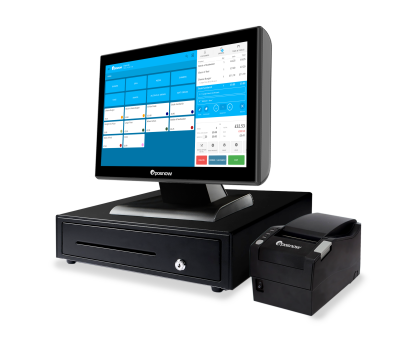Small Business Management: Everything You Need to Know
Starting a small business is a dream many people hold in the back of their heads. Most people at some point in their life will have an idea they believe would make them successful. However, few people have the grit and gumption needed to risk it all and become small business owners.
Once you're all set up, the actual running of your small business is a whole other ballgame. There are so many tasks in the day-to-day management of a company that it can be incredibly difficult to keep up. The majority of small businesses fail in their year, which can be attributed to poor management style.
The life of a small business owner can be difficult but following your entrepreneurial dreams is one of the most gratifying and fulfilling things you can do. If you equip yourself with the right management tools, you'll have a much better chance of success. While success is never guaranteed, cultivating good management skills can be an incredible help down the line.
At Epos Now, we're passionate about helping small businesses reach their full potential and succeed. With this in mind, we've compiled a list of helpful small business management tips to help you be the best manager you can be. A successful business starts with good small business management.
What is small business management?
As a concept, small business management is pretty self-explanatory. In short, small business management is overseeing and coordinating a company's day-to-day operations. While these companies can vary in size depending on the industry and the product, a small business manager will generally be responsible for 1 to 99 people.
The manager is undoubtedly one of the most important positions in the business and the consequences of their decision reverberate throughout the company. While their role is more concerned with daily business operations, many small business owners and managers choose to be involved in the practical side of their company. This is especially true in smaller businesses.
What does a small business manager do?
As we mentioned above, the responsibilities of a small business manager vary from business to business. With that being said, there are some general managerial duties that all managers will do. These duties include:
- Employee management - In both retail and hospitality settings, managers will be involved in managing employees. This will include hiring and training new employees, scheduling shifts, and monitoring employee and team performance.
- Budgeting - Ensuring their business sticks as closely to their budget as possible is an important part of the manager's job. Without a strict budget for salaries, stock buys, and marketing, a company can quickly overspend and run out of money.
- Business finances - Similar to budgeting, managers are oftern responsible for reviewing their company's finances. This generally means using financial management tools to evaluate how the business is doing and identifying ways to save money.
- Maintaining the company culture - Each business has its own unique vision and culture. Part of the manager's job is to ensure each team member knows and respects the company culture while also working to boost employee performance and morale.
Since no one company is identical to another, there is no one-size-fits-all job description for a manager and their duties. It is up to the manager to do their job to the best of their ability and find a management style that works for their role.
Why is small business management important?
To really understand the importance of good small business management, you should consider the effects of bad small business management. In a small business, the manager's influence can be felt throughout the entire company. Bad management practices can strangle any momentum the business and its employees may have had. In the worst-case scenario, a bad manager can directly impact a small business's failure.
Even the most hands-off manager will have daily interactions with their staff. Small business management is as much about ensuring employees are motivated and professional as it is about retail management or restaurant management.
Small business management can also greatly impact a company's cash flow. As they effectively manage both employee performance and the daily admin, a manager is responsible for ensuring healthy books. Good finances rely on admin, and retaining a trained employee is cheaper than onboarding a new one.
What are important small business management skills?
While some would say that small business managers are born rather than made, there are several skills you can learn that will help you implement proper business management. These skills work across both the retail and hospitality industries, so you'll get used out of them whether you work in store management or cafe management.
Decision-making
In small business management, managers are shouldered with a lot of responsibility. As part of that responsibility, they have to make difficult decisions about the direction of the company. If, as a manager, you find yourself incapable of making important decisions, you'll quickly hurt the business.
Important decisions often have to be made quickly. As a manager, you can't afford to do everything in your own time. You need to be able to process information and situations quickly and make the decision you feel is right.
Organization
Your role in small business management will require you to keep track of lots of information. Not only that, there will also be many different types of information coming at you each and every day. Organizational skills are incredibly important to maintain a good management technique.
How you stay organized is generally up to you. Most companies will have their management systems to help you, but you need the skills to use them properly. If you're struggling to be organized in your role. It's up to you to build systems that make sense to your day to day workflows. Even a simple to do list written on a piece of paper can be a huge help.
Attention to detail:
Managers need to spot strengths and weaknesses that others may have overlooked. This applies to both your workforce and your business. Does the outside of your physical location need a touch-up? Has a particular member of staff gone above and beyond in their role? These are the things managers need to be looking out for.
Attention to detail is particularly important in hospitality businesses as customers expect a little extra pizazz in these establishments. In kitchen management and bar management, presentation in your offerings can go a long way to securing continued custom.
Strong communication
No matter where you are or what industry you're in, strong communication skills are integral to small business management. Every successful small business owner knows that its easier to run a strong company when you build communication channels that work for all your employees.
With good communications, you build strong business relationships with your team while also being explicit about the company's expectations. If you can use your communication skill to get your employees to trust you, they're more likely to stay committed to their roles and get more sales.
How to be a small business owner
As we mentioned above, starting your own small business is an exciting but difficult task. At Epos Now, we believe that everyone with a dream should have the opportunity to start their own business. We've compiled a short step-by-step list that will give you all the tools you need to get started on the road to getting your new business up and running.
Develop a business plan
The biggest business leaders in the world all started by writing a simple business plan. This document will be your guiding light in the business world and will set out your company's concept and how it will operate.
A good business plan is essential to securing equity partners and will help with your project management. When developing your business plan, include a description of your products or services, a market analysis, a competitive analysis, and a marketing plan.
Set up your business structure
The type of business structure you choose (such as a sole proprietorship, partnership, or corporation) will affect how you are taxed, your personal liability, and the legal requirements for your business. Consider the advantages and disadvantages of each type of structure, and choose the one that best fits your business's needs. Once you have decided on a structure, set it up legally by registering with the appropriate government agencies and obtaining any necessary licenses or permits.
Secure funding
No matter how much you believe in your small business, you won't be able to launch your idea without funding. You have to spend money to make money as they say. Depeding on your product and your industry, there are a number of different ways to secure this funding.
These may include loans from banks or other lenders, grants from government agencies or private organizations, and investments from angel investors or venture capital firms. Research the different funding options and choose the one that is best suited to your business's needs.
Find a location
Choosing a location for your business is an important decision that will affect many aspects of your operations. Consider factors such as the availability of parking, the proximity to potential customers, and the local zoning laws.
Be sure to choose a convenient location for customers and employees that meets any legal requirements for your business. It is also important to prioritize accessibility when choosing a location. After all, the more people able to visit your business, the more money you'll be able to make.
Track your business finances
Accurate business administration financial record-keeping is crucial for the success of your small business. Keep track of your personal finances and expenses, and regularly review your financial statements to ensure that your business is financially healthy.
Small business administration is a tedious but crucially important part of running your company. Use financial tools such as budgeting, forecasting, and financial analysis to make informed decisions and plan for the future of your small company.

Gain all the advantages of a POS system with detailed, flexible, downloadable reports, and so much more:
- Manage and update products quickly with easy-to-use software
- Expand your business into multiple channels and integrate with a variety of online platforms
- Manage multiple locations and salespoints with multi-site management
- Keep queues short with streamlined, modifiable sales processes
- Choose a setup that suits you with software and hardware options
Small business management tips
Small business management can take a lot of work to get right. When you're on the shop floor making important decisions, it can be easy to get sidetracked from your own business goals. To give small businesses the right tools they need to succeed, we've compiled a list of helpful small business management tips.
Build trust within your team
Your team is the lifeblood of your small business. No matter how good you are at small business management, you can't run an entire company by yourself. As the manager, you need to sit down with your team and set out your expectations and open the floor to suggestions from your employees.
Suppose your team know that the business values their input and that everyone is on the same page. In that case, you'll be able to build much stronger professional relationships. make sure you bring this communication into your formal reviews. With a happy and motivated team, you'll be able to turn your business into a valuable résumé item.
Give yourself time to complete your tasks
Small business management asks a lot from managers in their time and effort. If you don't manage your time correctly, you'll quickly overextend yourself and burnout. Adopt a flexible schedule that gives you the time you need to complete your tasks without wasting your energy.
If you're struggling with time management, project management software can help you take complete control of your calendar. This will streamline your admin time and your business processes. Delegating tasks to your team can also be a big help.
Keep your business goals flexible
Every entrepreneur wants to make their business a success. Small business management will constantly teach you new lessons about your management skills and your business goals. If you're completely rigid in your outlook, you'll be unable to deal with the stops and starts that come with a new business.
A useful small business management tip is keeping yourself and your goals as flexible as possible. Flexibility will allow your to deal with setbacks in a way that will strengthen you in the long run.
Improve your small business management with powerful POS
In small business management, you should always be on the look out for tools and technology that will help you improve your business processes. A point of sale (POS) system from Epos Now will take your small business management skills to the next level.
Our POS systems are designed with small businesses in mind. The Epos Now Complete Solution offers inventory management, payment processing services, and access to a suite of award-winning apps.
Whether you’re in the market for a retail POS, an advanced POS system for hospitality or a sector-specific system such as a restaurant POS, we’ll have something for you.
If you're interested in learning more about how Epos Now can help small businesses, get in touch with our expert team below.




